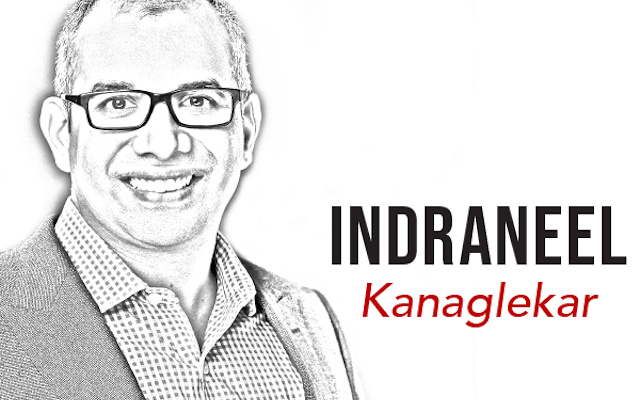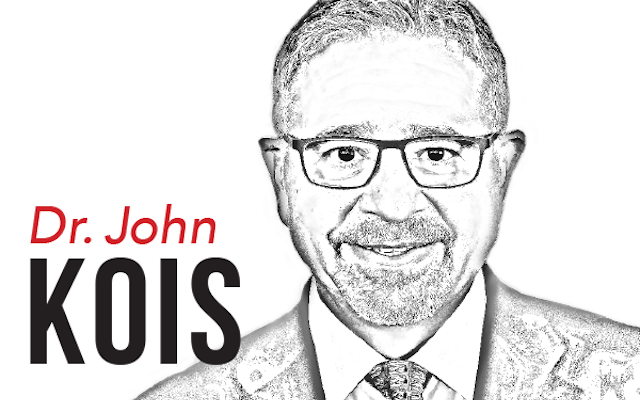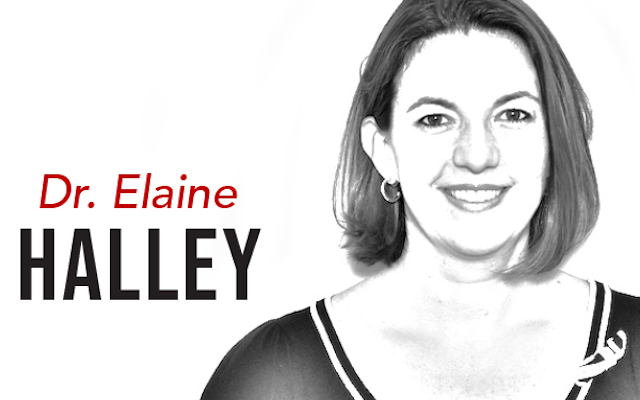As the new dean of the Harvard School of Dental Medicine (HSDM), Dr. William Giannobile has big plans.
He’s reopening and operating a recently shuttered dental clinic, expanding the program’s curriculum to cover more advanced technologies, pushing for more fellowships and scholarships, and developing ways to better prepare dentists for the business side of running a practice, to name just a few of those plans.
Dr. Giannobile took over his new role last September after spending more than 20 years at the University of Michigan. There, he most recently served as the William & Mary Anne Najjar Professor of Dentistry and chair of the department of periodontics and oral medicine, as well as a professor of biomedical engineering in the university’s college of engineering.
Throughout his career, Dr. Giannobile has focused on periodontology, oral regenerative medicine, tissue engineering, molecular biology and precision medicine. His broad scientific background and experience in engineering gives him a unique perspective that he’ll use to shape the dental program going forward.
“A lot of what you do in dentistry is micro aspects of engineering and reconstruction,” Dr. Giannobile said. “You’re reconstructing teeth or building bone and soft tissue. My dual appointment in engineering allowed me to collaborate with clinicians and students in a lab environment and meet talented researchers in the engineering field.”
An Evolving Industry
The HSDM alum graduated with an advanced degree in periodontology and oral biology in 1996, and then went on to complete his postdoctoral training in molecular biology at the Dana-Farber Cancer Institute and Harvard Medical School. Dr. Giannobile has seen some significant changes in several key areas since his days as an HSDM student.
One is the continued advancement of implant dentistry in the curriculum, he said, with general dentists placing implants more often. He’s also witnessed great progress in dental imaging and the various technologies that interface with digital dentistry. These technologies allow for precise digital impressions, leading to improved insights for more accurate diagnosis and better restorations.
Another big change is the understanding of the oral systemic link, which has led to more collaboration with medical providers as part of interprofessional education (IPE). Dental students now collaborate with peers who are studying to be physicians, nurses, hygienists and social workers, providing an even more robust educational experience.
Today’s students also spend more time learning outside of the main dental building than they did in the past, providing care through community outreach programs and seeing underserved patients at public health clinics.
“They’re getting experience in rural areas and other areas that have limited access to dental service,” Dr. Giannobile said. “I’ve been very impressed with the dental students of today in terms of their caring. It’s important to them to have a sense of community and to support those underprivileged individuals who don’t have proper access to quality dental care.”
Advanced technologies will continue to evolve the field, Dr. Giannobile said. Artificial intelligence, for example, will play an important role in treatment planning, “transforming dental medicine.”
“AI, deep learning and machine learning all are going to be very important in the integration of medical records and clinical information,” Dr. Giannobile said. “Also, in radiological images, genetic information and pathological information we can gather from patients. It will really help us in making decisions. In my role as dean, I’m embracing the field of computational medicine. Students entering dental school today will use AI in their dental practices at some point in their careers.”
The Rise of Peri-Implantitis
While the number of implants dentists place has gone up in recent years, so too has the incidence of peri-implantitis. There are many reasons for this, Dr. Giannobile said, and not all are well understood. One of the biggest? Lack of training.
“This is a big health problem as it relates to dental medicine,” he said. “Many of the practitioners placing implants don’t have adequate training on diagnosing, treatment planning and installation of dental implants. In some cases, complications around implants are not from the inflammation and infection of the implant but poor placement, residual cement or a variety of other factors.”
It’s more difficult to treat a failing implant than a failing tooth, Dr. Giannobile said, making better education and training vital. Clinicians need to be more judicious when deciding which patients are good candidates for implant placement, for example.
“You tend to see not just single implants failing but often multiple implants,” Dr. Giannobile said. “Training and education can help address this, along with better communication and collaboration between surgeons and the restorative dentist during the planning process.”
More Business Focused Curriculum
Often, dentists just out of school aren’t prepared for the business side of practice ownership. There isn’t sufficient focus on business topics in most dental schools, but for Dr. Giannobile that’s an area he wants to improve.
“We provide practice management seminars and give examples of the different types of practice settings from solo private practice to corporate dentistry to large group practice settings,” Dr. Giannobile said. “It’s important our students understand where they could end up after graduation.”
The DSO is among those business models, and one that’s having a significant impact on the role of dentists as business owners. DSO leaders serve on the dean’s advisory board and help inform educational programs at HSDM.
It’s critical to educate students so they can determine which business model is best for them—and working with a DSO is becoming an increasingly more popular option. Students are coming out of school with a large amount of debt. Signing on with a DSO allows them to practice dentistry without the expense of buying a practice and everything needed to operate that practice. They get a reliable salary right away, making it an attractive path.
“Harvard is well positioned to understand the changing landscape in dental medicine and looking at different clinical care models that can provide the greatest reach across the country and globe,” Dr. Giannobile said. “We want our community to better understand the opportunities and limitations of working with a DSO as a mode of clinical care delivery.”
A Focus On Diversity
In recent years, dental schools have been graduating more women and minorities, but clinical ownership and industry leadership doesn’t seem to be diversifying at the same pace. Dr. Giannobile would like to change that and is starting by examining the school’s culture as it relates to diversity, inclusion and belonging through a culture audit. The goal is to understand how faculty and students see the school’s culture and how it can be altered to better represent the students entering the school.
Providing scholarships to students from underrepresented minority groups and communities is also crucial, giving them the opportunity to receive an education from a top dental school.
HSDM recently held a scholarship drive for the Freeman, Grant, Franklin Scholarship, which honors prominent African American HSDM figures: Robert Tanner Freeman, the first African American in the nation to graduate from dental school; George Franklin Grant, HSDM’s first African American faculty member; and Dolores Mercedes Franklin, the first African American woman to graduate from HSDM. The scholarship, launched in January, supports a dental student from an underrepresented minority group.
“I want to help promote more scholarships and fellowships for students because the amount of debt is increasing so dramatically,” Dr. Giannobile said. “It makes it difficult to buy a practice. I as a dean am looking to reduce debt and financial constraints so students have more options.”
And as a global university, it’s also critical for HSDM to attract the best and brightest from around the world, Dr. Giannobile said. International students are involved in advanced graduate education programs as well as post-doctoral training, while many faculty members receive training outside the U.S. as well.
“Including individuals from the international realm,” Dr. Giannobile said, “helps us create a rich culture of science and education.”
New Endeavors
HSDM’s last dean, Dr. Bruce Donoff, held the position for nearly 30 years, elevating the school’s prominence and reputation during that time. Dr. Donoff has been supportive throughout the transition, and the rest of the team open to the new ideas and opportunities Dr. Giannobile has pursued.
One of those opportunities involves taking over ownership of the Harvard University Health Service (HUHS), which closed last September after serving the community for more than 50 years. HSDM will reopen and run the facility beginning in February, enabling the school to fill a critical gap in care.
Dr. Giannobile is looking at new areas of discovery and using his background to help shape the curriculum, with oral cancer among the areas he wants students to explore.
“Mortality rates for oral cancer are very poor, and we’re seeing increases in HPV,” he said. “It’s important for leaders in dental medicine to solve this problem we have with cancer.”
Dr. Giannobile is also working on a new affiliation with the Forsyth Institute, a center of excellence the school has had an association with since the 1950s. Research areas include oral microbiology and immunology.
“It is the largest private dental research institute in the world and many of their staff members also have appointments at the Harvard School of Dental Medicine,” Dr. Giannobile said. “We look forward to collaborating with their scientists, who do translational research as well as clinical research.”
Dr. Giannobile plans to keep some of his past affiliations, including one with the Michigan-Pittsburgh-Wyss Regenerative Medicine Resource Center (MPWRM RC), a partnership amongst the University of Michigan, the University of Pittsburgh, and the Wyss Institute. The goal is to partner with scientists, engineers and clinicians to translate dental, oral and craniofacial tissue engineering and regenerative medicine technologies to the clinical marketplace. Dr. Giannobile is the initiative’s co-principal investigator.
“Multidisciplinary research is very important,” he said. “The Wyss Institute is positioned almost across the street from the Harvard School of Dental Medicine and focuses on Biologically Inspired Engineering with important connections to oral regenerative medicine.
A Little Help Along the Way
Dr. Giannobile has achieved great things, all with the support and guidance of mentors who have helped him throughout his career. The first was Dr. Charles Cobb, who inspired him to specialize in periodontology.
Drs. Sam Lynch and Ray Williams became mentors during his time in the periodontology program, with Williams the first to invite him to HSDM. Dr. Charles Stiles, a faculty member at the cancer institute and at Harvard, guided him along his scientific career path. Drs. Myron Nevins and Martha Somerman were there as he transitioned to become a faculty member, and Dr. Peter Poverini, the former dean of the University of Michigan School of Dentistry and HSDM alum, became a key role model and source of encouragement as he pursued his current position.
Navigating The Pandemic
One of the biggest challenges Dr. Giannobile has faced during his short time as dean is taking over in the middle of a pandemic, he said, noting it’s not how he would have chosen to start this new chapter. He’s a people person who likes to engage with others, so having to do so much remotely has been difficult. But, he’s been impressed with how the team has pulled together to successfully navigate through it all.
The pandemic has forced remote learning and brought about new ways to look at patient care. Many patients are putting off dental work, Dr. Giannobile said, which will only lead to bigger problems and emergencies in the future. HSDM students are preparing to meet that need and to provide top-notch dentistry for the communities they’ll soon serve.
“The pandemic has had so many impacts on dental education,” Dr. Giannobile said. “Our priority is creating a safe environment for our patients, dental students, faculty and staff and delivering the best clinical care possible. Our students are well prepared to understand the importance of public health. We are frontline health care workers and are critically important in this pandemic.”
 By:
By: 


